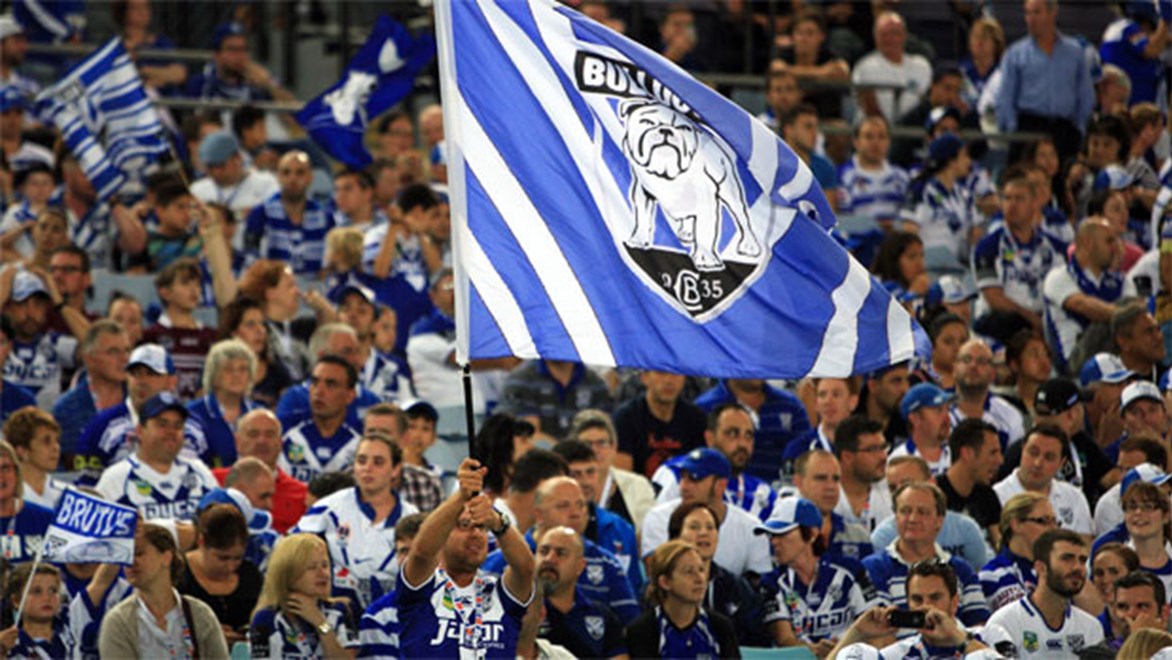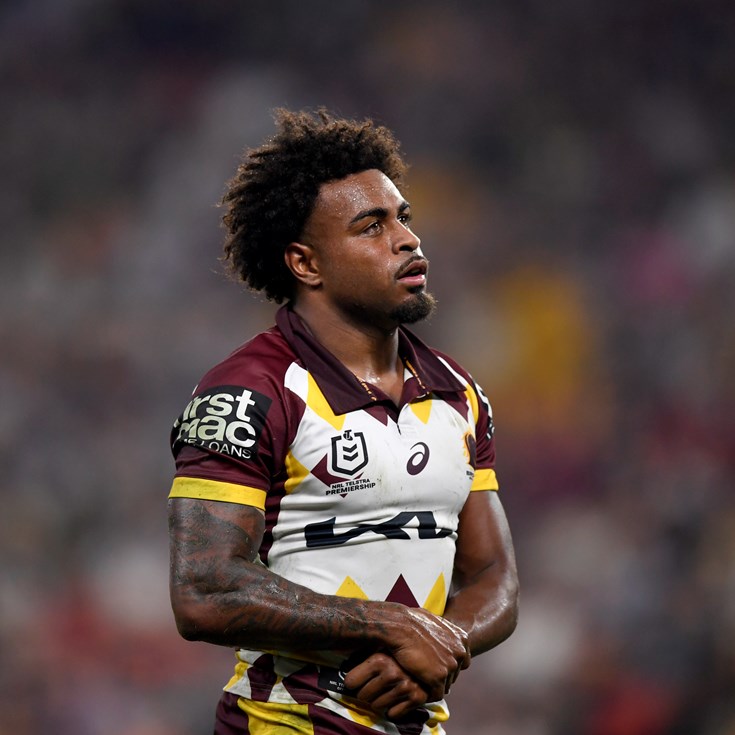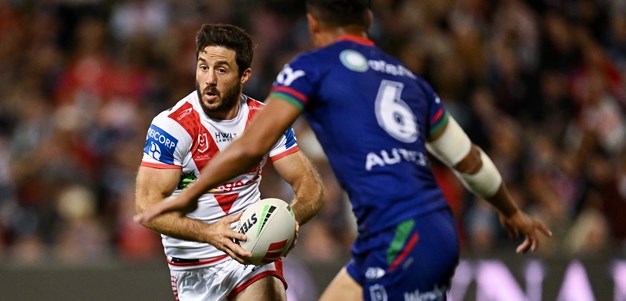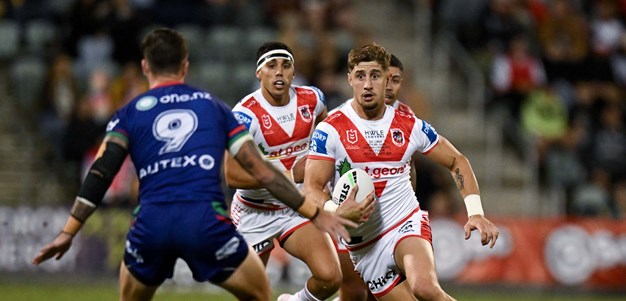

NRL.com goes one-on-one with Canterbury-Bankstown Bulldogs chief executive Raelene Castle.
Q: It's almost your 100-day anniversary. How have found the gig?
A: It's been fantastic. The rugby league community are a very welcoming group and been very supportive of my appointment, both from the perspective of being a female, being a New Zealander and also being relatively new to the Sydney market. I couldn't ask for any more help or support.
Q: Is it everything you thought it would be?
A: And more. I think the fundamentals of the job are very similar the job at Netball [New Zealand] which is that you need a strong commercial team and department to raise enough commercial dollars to make sure your business is sustainable so you can be a successful team on the field. The bits that are different are the media focus that you get. It's much, much more intense and requires a lot more daily management.
Q: Has that been the biggest challenge you've faced, the media?
A: Yeah, but it wasn't unexpected. It's just that when you've got 100 journalists across print, radio, television, social, it's a lot of people to try and keep happy and try and keep across. Everyone's got a slightly different take on things. The Bulldogs in particular are darlings of the media, both in a positive and negative way. We have a large fanbase, there are a lot of people that want to read about what's happening at the Bulldogs. It's a great thing and I wouldn't change it for the world but it also means that if you've got some challenging media things happening, there are more people interested in it.
Q: When you took the job you walked straight into the Ben Barba fiasco. In hindsight, are you happy with the way it was dealt?
A: I think so. These things are never easy, and there's never a perfect outcome because there's always one party that isn't completely happy. But we've got a player who seems to be much happier in his life off the field, his family are much more stable and happy, and that can only be a good thing. Hopefully he'll get his footy form back as well. Clearly he's having a few challenges at the moment. But a settled player off the field will ultimately deliver.
Q: I take it you're the party that isn't completely happy since it's left you without a fullback?
A: And that's the bit that's not perfect. The perfect outcome would've been that we would've ended up with another fullback and everyone would've moved on, but it doesn't always work out that way. We compete for players and a roster with the salary cap system that means it's very rare that any one team's got a perfect option at 1-17. That's the nature of the salary cap, which is a good thing. That's why it works so well, because you've got some interesting debates and challenges. #findafullback's a favourite one that I keep getting all the time on Twitter, which is funny. [People] tweet me and say, "Raelene Castle for god's sake, #findafullback". It's good fun. You've got to take it in the spirit that it's meant, which is that they're very passionate about the performance of the Bulldogs, and they want to see us win. As do I. No one more than me wants to see that.
Q: What's your take on the salary cap – good, bad?
A: I had dealt with salary caps previously in netball so I had a pretty good idea how they worked. Obviously there's more in-depth machinations around the NRL salary cap because it's a complex beast. The best way I can describe it is as a massively complex jigsaw puzzle. It's like a 1000 piece puzzle that you throw on the floor and all the pieces look the same, you've got to try and build them together. So at any one time you're running four years worth of spreadsheets – four years because every time you sign a player for three years, it's got a 3-4 year impact for you. So you can't even look at one year in isolation, you've got to be forecasting three years in advance.
Q: With the aftermath of the Andrew Fifita contract bungle still in the air, what have you learnt about that particular situation?
A: The biggest learning curve was... we have a policy and we never confirm player signings until the NRL player contract is signed. We found ourselves in a situation where Andrew had tweeted – and the Cronulla Sharks confirmed – he was leaving. And for us to come out and say anything other than Andrew was coming to the Bulldogs would've come out strange and churlish. We have that process in place for a reason, in the same way we were slow in announcing [James] Graham, [Tim] Lafai and [Josh] Morris because we wanted to make sure we had everything down and approved. These things aren't simple and straightforward. They're complex right until you get the final signature on the dotted line. I would never put us in that situation again.
Q: So he didn't sign an actual playing contract?
A: He signed the MOU, we had a signed MOU but the process in turning an MOU into a player contract is not a straightforward process. There's obviously a huge amount of detail in an NRL playing contract that you have to agree to. We couldn't reach those final terms that are required to get that long-form NRL playing contract finalised.
Q: What about Michael Lichaa – have you signed him?
A: No, we've made no announcement on Lichaa. Yeah, that's one of those things – once bitten, twice shy. We're not in a position to confirm the signing of Lichaa at this stage.
Q: And so where does that leave your captain, Michael Ennis? Do you intend on re-signing him?
A: He's been a fantastic captain for us over the last five seasons. On the telly yesterday there was an old Brisbane game, they were playing the Titans, it was Mick Ennis when he was 21. I thought it was hilarious. He's been a great captain and we continue negotiations with him to see if we can find a way that is good for us, and good for Mick.
Q: After all this, how would you improve the salary cap? Are you a fan of the player draft and trade window?
A: Every time you come up with an idea, you fundamentally risk undermining the essence of the salary cap. The point of a salary cap is that you try and keep 16 teams even. And you make sure that they've all got exactly the same advantages and opportunity. So every time you bring a draft in, you give someone a false advantage. A player window you can argue, [but] my view is that you put a player window in place and someone – be a player or a team that really wants to make something happen – they'll find a way because that's human nature. People don't sit on their hands and wait for a six-week period. So I'm not a fan of a player window, I don't think it adds a huge amount of value.
It's more important to look at supporting teams outside of the player cap, making sure that teams have the opportunity to build equal quality facilities for the athletes around high-performance outcomes, and making sure the quality of coaching they have in place is equal. Thinking long and hard about travel pressures for teams like the Warriors and the Cowboys, because those are massive player welfare issues. They have to hop on a plane and travel [regularly].
Q: Final one: working with someone like Des Hasler. Take us into the CEO-coach relationship.
A: Well it's a fundamental core relationship to success in an NRL club – the coach-CEO relationship. If it doesn't work well, it's always going to be challenging. It's always going to put the club's culture and performance at risk. So my approach to it was slowly, slowly, because he'd been in the game for 35 years and I'd been in the game for two minutes. So I had to earn some stripes and build some relationships. He's a character who has a small group of close confidants. And I had to earn my place in that group.




